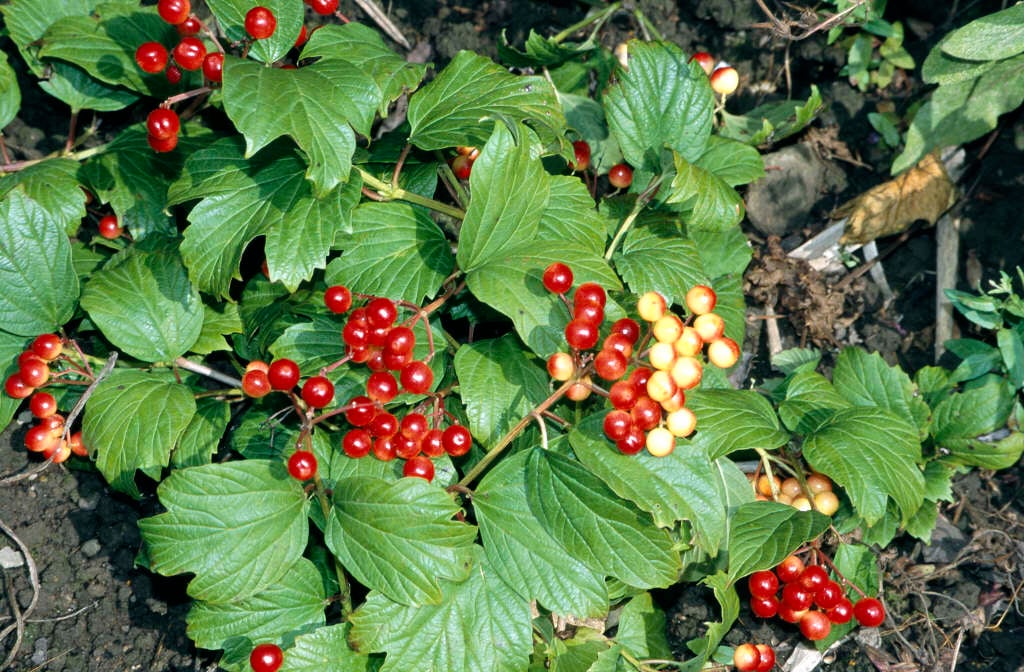Viburnum opulus
guelder rose
A vigorous, bushy, deciduous shrub to 5m, with maple-like, palmately lobed, dark green leaves, tinted red in autumn. Flat clusters of lacecap-like flowers, composed of tubular white fertile flowers surrounded by larger white sterile flowers in late spring and early summer, followed by translucent bright red fruits often persisting into winter
Other common names
crampbarkcranberry
see moredog eller
dog rowan
European cranberry bush
European cranberry tree
gatten
marsh alder
ople tree
red elder
rose elder
snowball tree
water elder
whitten tree
gatten tree
Size
Ultimate height
4–8 metresTime to ultimate height
10–20 yearsUltimate spread
2.5–4 metresGrowing conditions
Moisture
Moist but well–drained, Well–drainedpH
Acid, Alkaline, NeutralColour & scent
| Stem | Flower | Foliage | Fruit | |
| Spring | White | Green | ||
|---|---|---|---|---|
| Summer | White | Green | ||
| Autumn | Red | Red | ||
| Winter | Red |
Position
- Full sun
- Partial shade
Aspect
North–facing or West–facing or South–facing or East–facing
Exposure
Exposed or Sheltered Hardiness
H6Botanical details
- Family
- Viburnaceae
- Native to GB / Ireland
- Yes
- Foliage
- Deciduous
- Habit
- Columnar upright
- Potentially harmful
- Fruit are ornamental - not to be eaten. Wear gloves and other protective equipment when handling. Pets: Fruit are ornamental, not to be eaten - see the HTA guide to potentially harmful plants for further information and useful contact numbers
- Genus
Viburnum can be deciduous or evergreen shrubs with opposite, simple or palmately lobed leaves and clusters of small, often fragrant white or pink flowers, followed by red, blue or black berries
- Name status
Correct
- Plant range
- Eurasia NW Africa
How to grow
Cultivation
Suitable for shrub border, wildlife or woodland garden. Grow in moderately fertile, humus-rich, moist but well-drained soil in sun or part shade. See viburnum cultivation for further advice
Propagation
Propagate by seed in containers in a cold frame in autumn or propagate by softwood cuttings (greenwood) in summer
Suggested planting locations and garden types
- Coastal
- Cottage and informal garden
- Wildlife gardens
- Flower borders and beds
- Hedging and screens
Pruning
Pruning group 1 after flowering unless fruit is required
Pests
May be susceptible to aphids and viburnum beetle
Diseases
May be susceptible to Phytophthora, honey fungus, grey moulds and leaf spot
Get involved
The RHS is the UK’s gardening charity, helping people and plants to grow - nurturing a healthier, happier world, one person and one plant at a time.
